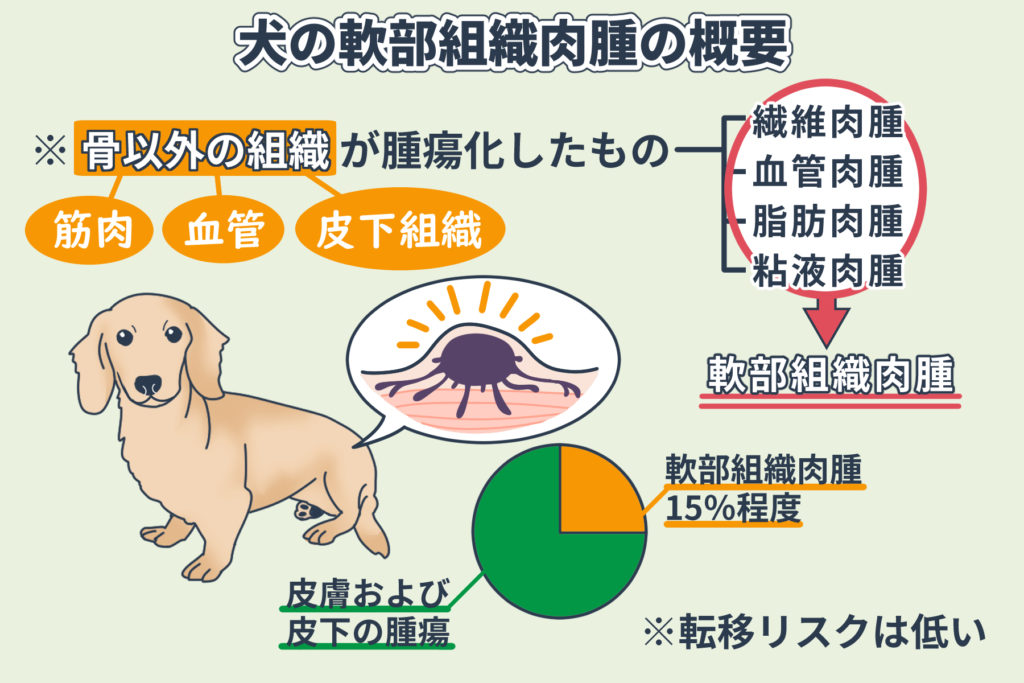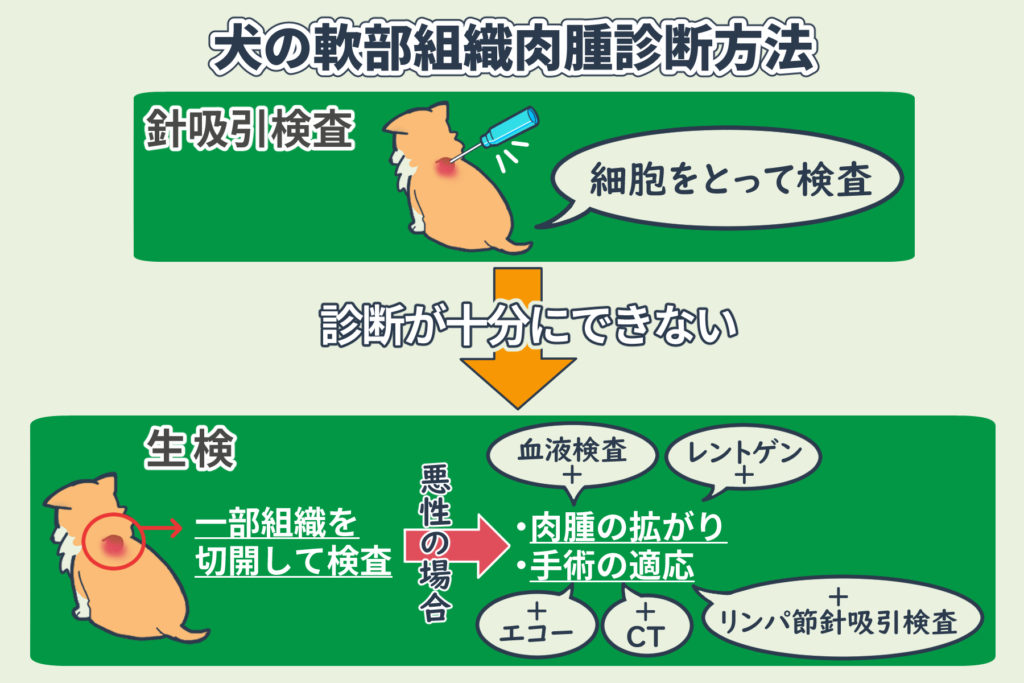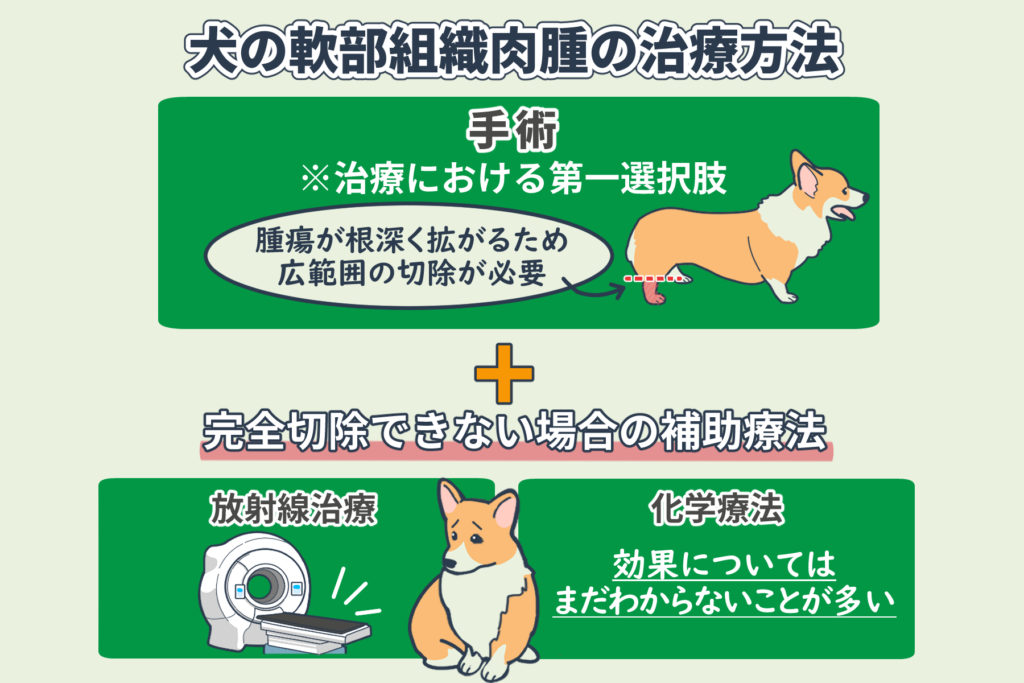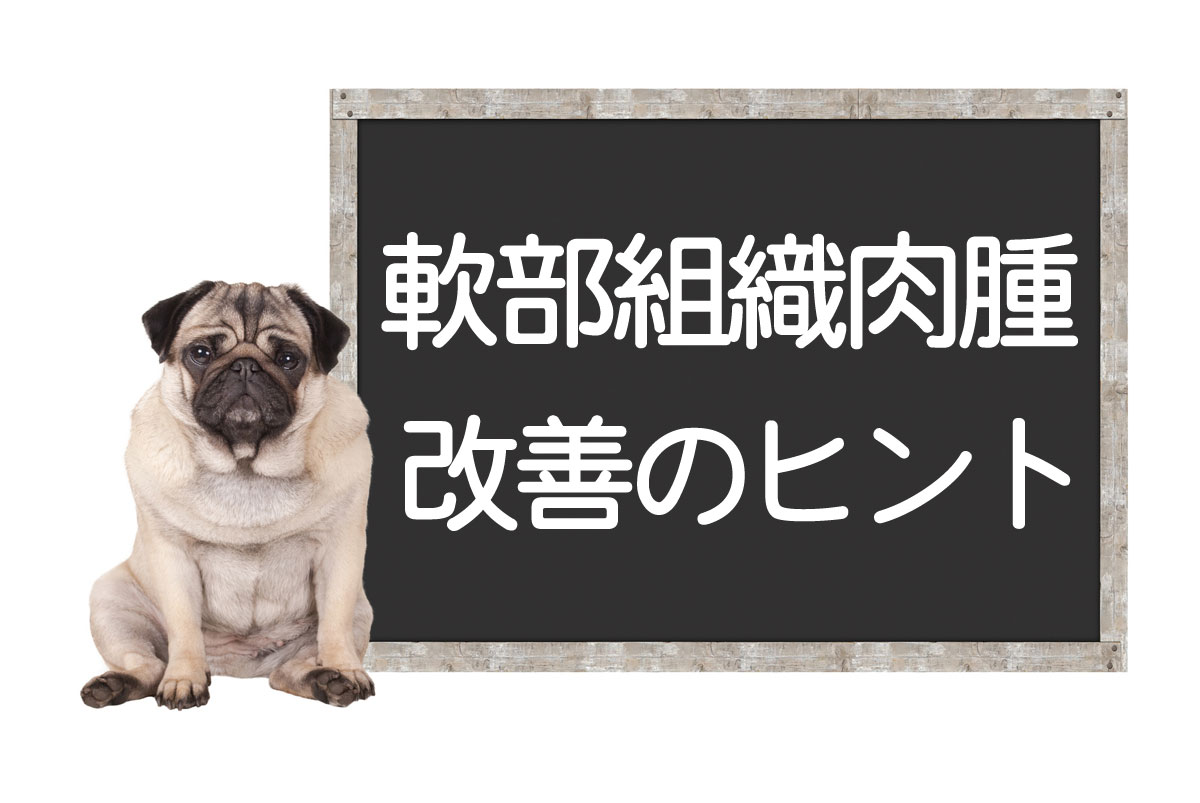Soft tissues refer to structures other than bones, including muscles, blood vessels, and subcutaneous tissues. Tumors that can develop in these soft tissues include fibrosarcoma, angiosarcoma, liposarcoma, and myxosarcoma. Due to their shared characteristics, these tumors are collectively diagnosed and treated as soft tissue sarcomas. Although this type of cancer is quite troublesome, we believe that working on the immune system can improve overall health, maintain quality of life (QOL), and restore vitality and appetite. In fact, there have been many cases where immune interventions using Cordy have effectively controlled cancer in dogs.
This page provides a summary of the types of soft tissue sarcomas, their treatments, and tips for improvement or potential recovery. Many improvement cases are also introduced. We hope this will be a source of support and a beacon of hope for everyone.
目次
- 1 What is Canine Soft Tissue Sarcoma?
- 2 Causes of Canine Soft Tissue Sarcoma
- 3 Symptoms of Canine Soft Tissue Sarcoma
- 4 Diagnosis of Canine Soft Tissue Sarcoma
- 5 Treatment of Soft Tissue Sarcoma in Dogs
- 6 Prevention Methods for Soft Tissue Sarcoma in Dogs
- 7 Improving the Prognosis for Cats with Histiocytic Sarcoma
What is Canine Soft Tissue Sarcoma?

Soft tissues refer to structures other than bones, including muscles, blood vessels, and subcutaneous tissues.
Tumors arising in these areas are referred to as soft tissue sarcomas, with the following being representative examples:
- Fibrosarcoma
- Angiosarcoma
- Liposarcoma
- Myxosarcoma
among others.
These tumors share common characteristics and are collectively diagnosed and treated as ‘soft tissue sarcomas’.
They account for about 15% of skin and subcutaneous tumors in dogs.
Depending on the level of malignancy, they are relatively less prone to metastasis.
Causes of Canine Soft Tissue Sarcoma
The exact causes are unclear, but they often occur in older dogs.
Since they frequently appear on the surface of the body, many owners discover “lumps” during physical contact with their pets.
Symptoms of Canine Soft Tissue Sarcoma
The symptoms vary depending on the location of the tumor.
Since they often occur on the body’s surface, they are often found during grooming.
Symptoms can include lameness, pain, cachexia (wasting), and in some cases, tumors can rupture, leading to bleeding and infection at the site.
While sarcomas usually do not cause pain, they can present various symptoms depending on their location and size.
Diagnosis of Canine Soft Tissue Sarcoma

Diagnosis is performed through tissue biopsy or surgical removal followed by pathological examination.
Fine-Needle Aspiration (FNA)
When soft tissue sarcoma or other malignant tumors are suspected, a fine-needle aspiration test is first performed to examine the cells, but FNA alone often does not provide a definitive diagnosis, in which case a biopsy is conducted for confirmation.
Biopsy
Pathological examination involves cutting out a portion of tissue to determine the type of tumor. If the pathology confirms a malignant tumor, the next step is to assess the extent of the sarcoma to determine if surgery is a viable option.
Blood tests, X-rays, ultrasound (echography), lymph node fine needle aspiration, and CT scans are also utilized in combination.
Treatment of Soft Tissue Sarcoma in Dogs

Since soft tissue sarcoma is a malignant tumor (cancer) that is difficult to treat with chemotherapy or radiation, the first choice of treatment is surgery.
Surgery
Early surgical removal is the primary choice for all soft tissue sarcomas.
However, because soft tissue sarcomas are highly invasive (the tumor spreads deeply like infiltration), removing only the visible parts during surgery can lead to recurrence. Therefore, a wide excision is necessary during surgery. Amputation of the limb may be required if the tumor is located on an extremity.
Even after such extensive removal, it is often difficult to achieve a complete excision, so chemotherapy and radiation therapy may be used in conjunction. Since the effectiveness of chemotherapy is not fully understood, further research is required.
Radiation Therapy
Due to the high resistance of soft tissue sarcomas to radiation, it is not the first choice of treatment but is used as an adjunct therapy for areas that could not be fully removed by surgery.
Chemotherapy
Due to the lack of reports demonstrating the effectiveness of chemotherapy for soft tissue sarcomas, it is sometimes used as an adjunct therapy similar to radiation therapy.
If you decide to undergo radiation or chemotherapy, it is beneficial to care for the liver with Cordy for immune support and Placenta Kiss Powder derived from domestic SPF pigs for liver and kidney care.
- Chemotherapy used in the treatment of cancer in dogs and cats – Side effects, precautions, etc.
- Targeted therapies used in the treatment of cancer in dogs and cats
- Types and protocols of chemotherapy and anticancer drugs used for lymphoma in dogs and cats
- Micro-exposure to Chemotherapy Drugs – Caution during cancer treatment for pets
- The reason why 90% of chemotherapy side effects occur
- Chemotherapy was recommended for my dog/cat, but what about the risks of side effects?
Prevention Methods for Soft Tissue Sarcoma in Dogs
Avoiding harmful substances is considered beneficial for the prevention of all types of tumors. Additionally, by consuming Cordy, which is expected to have immune-regulating effects, the risk of soft tissue sarcoma can potentially be reduced.
Improving the Prognosis for Cats with Histiocytic Sarcoma
There is no established definitive treatment for histiocytic sarcoma in cats, and it is sometimes said that nothing can be done. However, it is not uncommon for stabilization of the immune system to alleviate various symptoms and slow tumor progression.
Cordy, which is expected to have immune-modulating functions, may help in suppressing tumor growth and preventing recurrence. Even if histiocytic sarcoma cannot be completely cured, maintaining a cat’s appetite and vitality, while inhibiting tumor progression, allows for enjoyable times with your pet.
While the extent of the response may vary, there is a significant potential for recovery of appetite and vitality.
For prevention purposes, Cordy, which is highly safe, can be used with confidence. There is no concern about side effects like those associated with pharmaceuticals. For histiocytic sarcoma and cancers in general, prevention is considered the best approach.
Our laboratory is conducting research to determine if Cordy can regulate the immune system and if it can have beneficial effects on cancer.
If you have any questions, please feel free to contact us.
監修獣医師:林美彩 所属クリニック:chicoどうぶつ診療所

代替療法と西洋医学、両方の動物病院での勤務経験と多数のコルディの臨床経験をもつ。 モノリス在籍時には、一般的な動物医療(西洋医学)だけでは対応が困難な症例に対して多くの相談を受け、免疫の大切さを痛烈に実感する。
ペットたちの健康維持・改善のためには薬に頼った対処療法だけではなく、「普段の生活環境や食事を見直し、自宅でさまざまなケアを取り入れることで免疫力を維持し、病気にならない体づくりを目指していくことが大切である」という考えを提唱し普及活動に従事している。
所属:
- Fibrosarcoma in Cats and Dogs ― Malignant Tumors, Tests, Surgery, Treatments, and Tips for Improvement and Cure
- Hemangiosarcoma in Dogs ― Symptoms, Types, Surgery, Treatments, and Methods for Improvement
- Cancer (Tumors) in Dogs ― Cancer Symptoms, Tests, Surgery, Treatments, Diet, and Tips for Improvement and Cure






